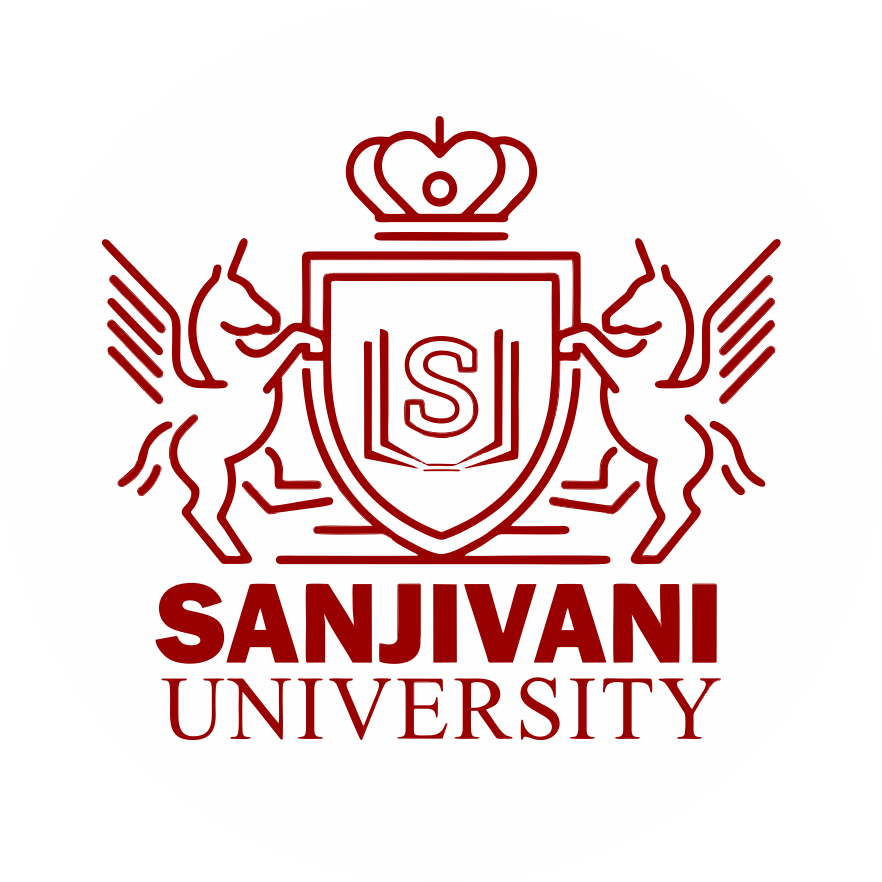
Quick Link
Home About Us Sustainability Academics Admission Events Life at Sanjivani IQAC Contact UsContact Us
Sanjivani University, Kopargaon, Near Shirdi, Ahilyanagar (Ahmednagar), 423601.
Welcome to the Department of Artificial Intelligence and Machine Learning at Sanjivani University! Our department is at the cutting edge of technological advancement, dedicated to advancing the field of AI and ML through world-class education, research, and industry collaboration.
About Us
The Department of Artificial Intelligence and Machine Learning at Sanjivani University is committed to excellence in education and research in AI and ML. We aim to give students a strong foundation in these technologies, preparing them to innovate and solve complex problems in various domains.
Our faculty members are renowned experts in AI and ML, bringing a wealth of knowledge and experience from both academic and industry backgrounds. They are dedicated to providing a comprehensive, hands-on education that equips students with the skills necessary to excel in a rapidly evolving technological landscape.
Programs Offered
Features of Department:
Our curriculum is powered by IBM, ensuring that our syllabus is aligned with industry standards and technological advancements. This collaboration provides our students with access to cutting-edge tools, resources, and real-world scenarios, enhancing their learning experience and preparing them for the demands of the global tech industry.
Our research encompasses a wide range of advanced topics within AI and ML, including:
We promote interdisciplinary research and collaboration, working with industry leaders and research institutions to drive impactful innovations and discoveries.
Our department is equipped with modern facilities and labs designed to support both theoretical and practical work with Advanced Computing Labs with high-performance GPUs.
We have signed Memorandums of Understanding (MOUs) with prominent industry organizations, including:
These collaborations help us offer internships, workshops, and placement opportunities that bridge the gap between academia and industry, ensuring our students are well-prepared for successful careers in the tech sector.
Our faculty members are distinguished professionals with extensive expertise in AI and ML. They are committed to mentoring students, guiding research initiatives, and contributing to the academic community through publications, conferences, and collaborative projects.
Student Life
The department fosters an engaging and dynamic student community, offering:
Join us at Sanjivani University and be a part of the future of AI and ML!
PO1 : Engineering Knowledge: Apply knowledge of mathematics, natural science, computing, engineering fundamentals and an engineering specialization as specified in WK1 to WK4 respectively to develop to the solution of complex engineering problems.
PO2 :Problem Analysis: Identify, formulate, review research literature and analyze complex engineering problems reaching substantiated conclusions with consideration for sustainable development. (WK1 to WK4)
PO3 :Design/Development of Solutions: Design creative solutions for complex engineering problems and design/develop systems/components/processes to meet identified needs with consideration for the public health and safety, whole-life cost, net zero carbon, culture, society and environment as required. (WK5)
PO4 :Conduct Investigations of Complex Problems: Conduct investigations of complex engineering problems using research-based knowledge including design of experiments, modelling, analysis & interpretation of data to provide valid conclusions. (WK8).
PO5 :Engineering Tool Usage: Create, select and apply appropriate techniques, resources and modern engineering & IT tools, including prediction and modelling recognizing their limitations to solve complex engineering problems. (WK2 and WK6)
PO6 :The Engineer and The World: Analyze and evaluate societal and environmental aspects while solving complex engineering problems for its impact on sustainability with reference to economy, health, safety, legal framework, culture and environment. (WK1, WK5, and WK7).
PO7 :Ethics: Apply ethical principles and commit to professional ethics, human values, diversity and inclusion; adhere to national & international laws. (WK9)
PO8 :Individual and Collaborative Team work: Function effectively as an individual, and as a member or leader in diverse/multi-disciplinary teams.
PO9 :Communication: Communicate effectively and inclusively within the engineering community and society at large, such as being able to comprehend and write effective reports and design documentation, make effective presentations considering cultural, language, and learning differences
PO10 :Project Management and Finance: Apply knowledge and understanding of engineering management principles and economic decision-making and apply these to one’s own work, as a member and leader in a team, and to manage projects and in multidisciplinary environments.
PO11 :Life-Long Learning: Recognize the need for, and have the preparation and ability for i) independent and life-long learning ii) adaptability to new and emerging technologies and iii) critical thinking in the broadest context of technological change. (WK8)
PROGRAM SPECIFIC OUTCOMES (PSOs)
POS1: Apply the fundamentals and advanced Artificial Intelligence and Machine Learning techniques and tools such as Python, R, TensorFlow, and IBM Watson by proficiently designing and implementing solutions for real-world challenges.
POS2:Integrate emerging AIML techniques across diverse domains to develop innovative solutions for complex engineering and societal problems, while ensuring
implication, safety, quality, and responsible use of Artificial Intelligence.
POS3:Demonstrate innovation, entrepreneurship, and lifelong learning to adapt and contribute effectively to emerging Artificial Intelligence and allied technologies trends.
PROGRAM EDUCATIONAL OBJECTIVES (PEOs)
The graduates of the B. Tech CSE (Artificial Intelligence and Machine Learning) program will:
PEO1: Pursue successful careers or higher education in Artificial Intelligence and Machine Learning and related fields, contributing to research, industry, and academia
PEO2:Apply ethical principles, leadership skills, and professional behavior while innovating solutions that positively impact society and promote sustainable development.
PEO3: Collaborate effectively in interdisciplinary teams, communicate technical information, engage in lifelong learning, and assume roles of responsibility in professional &
entrepreneurial ventures.